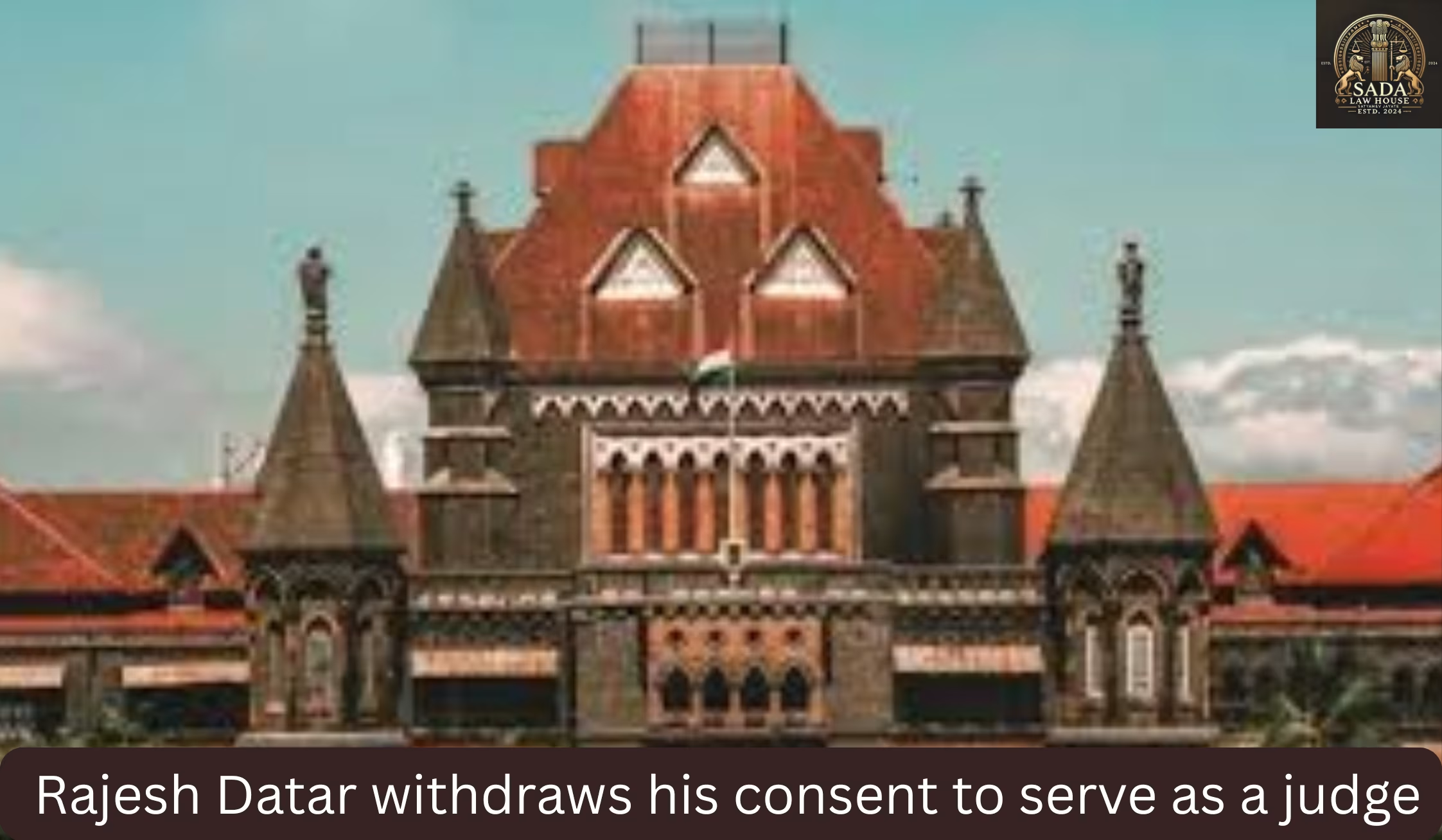Advocate Rajesh Datar Withdraws Consent for Bombay High Court Judgeship Over Centre’s Delay
- Prabhat Kumar Biltoria
- 8 JULY 2025

Senior advocate Rajesh Datar has declined elevation to the Bombay High Court after a nine-month delay by the Centre, highlighting growing concerns over judicial appointment backlogs and lack of transparency.
Rajesh Datar Declines High Court Judgeship Amid Prolonged Silence
In a strong message to the judiciary and the executive, Rajesh Sudhakar Datar, a respected senior advocate, has withdrawn his consent to become a judge of the Bombay High Court. The move comes nine months after the Central Government failed to act on the Supreme Court Collegium‘s recommendation, dated 24 September 2024.
Timeline of Events: From Consent to Withdrawal
April 5, 2024: Datar submitted his consent following a request from the then-Chief Justice of the Bombay High Court.
September 24, 2024: His name was recommended by the Collegium as first in a group of four advocates.
July 5, 2025: Datar formally withdrew his consent due to prolonged government inaction.
While the three other nominees—Gautam Ankhad, Mahendra Nerlikar, and Sachin Deshmukh—were recently appointed, Datar’s case remained pending without explanation.
Datar’s Statement: Silence and Self-Respect
In his withdrawal letter dated July 5, Datar wrote:
“There has been no word, no explanation. I made the decision to step back. Both the Bar‘s respect and my own self-respect are at stake.”
He added that although he had accepted the offer out of professional obligation, his remaining term as judge would have been brief due to his age of 55.
A Pattern of Withdrawals: Not an Isolated Case
Datar’s action follows a similar withdrawal by Shwetasree Majumdar, a Delhi-based counsel, further underlining a troubling trend of delays in judicial appointments.
Legal commentators have pointed out how these unexplained delays can undermine:
Judicial independence
Morale of respected legal professionals
Integrity of the Collegium system
Systemic Issues in Judicial Appointments
Critics have long accused the Central Government of “cherry-picking” names while leaving others in limbo. As recently as July 3, 2025, the Supreme Court Collegium recommended 36 more names in an urgent attempt to fill the 370+ vacancies across India’s High Courts.
Datar’s case has reignited calls for:
Greater transparency in judicial appointments
Accountability from the executive
Institutional respect for the judiciary
What This Means for the Judiciary
Datar’s withdrawal symbolizes more than personal disappointment—it highlights a systemic challenge. Delays and lack of transparency are increasingly seen as disrespectful to individual merit and institutional dignity, threatening the independence of India’s judiciary.






